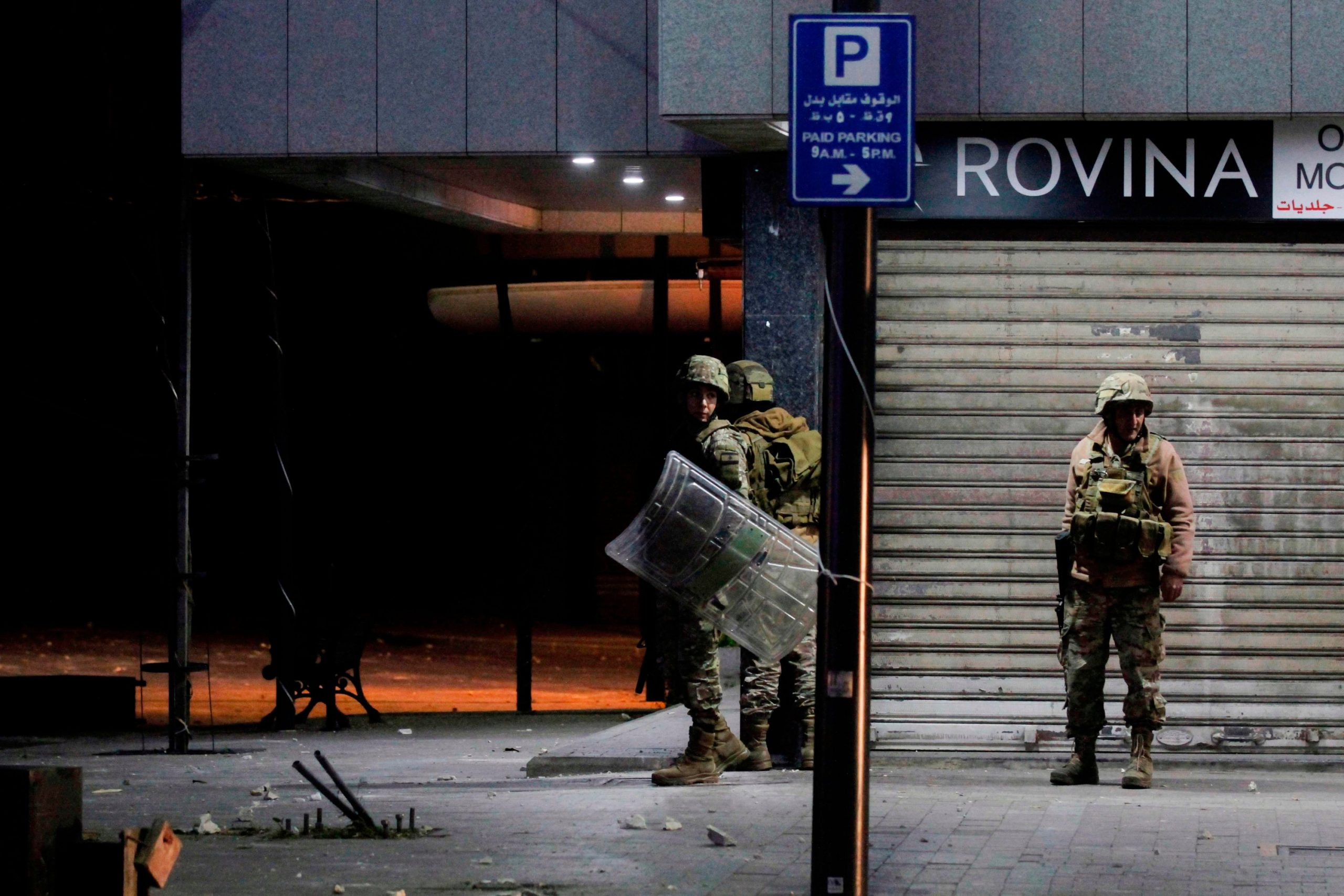Lebanon is grappling with renewed violent protests for a second consecutive night. At least a dozen banks across the country were torched and vandalized during protests fueled by frustration over the national currency’s unfettered depreciation.
In a second Lebanese city, Tripoli, protesters hurled rocks at security forces, who responded with tear gas and rubber bullets.
The violence came after a protester died on Tuesday from a bullet wound he had sustained during overnight confrontations between troops and hundreds of demonstrators in Tripoli.
Following the funeral of 26-year-old Fawaz al-Samman in the city’s central Al-Nour Square, demonstrators went on a rampage, torching and vandalizing banks and military vehicles. Troops fired live rounds into the air to try to disperse stone-throwing protesters under clouds of tear gas. Tuesday’s confrontations were the latest in a string of anti-government protests.
The country’s dire financial straits have only been worsened by a shutdown to rein in the coronavirus pandemic. After nearly two months of lockdown, food prices are soaring and unemployment is spiraling. The growing unrest threatens to tip Lebanon into a more serious conflict, even as Beirut looks to pass an economic rescue plan and enter talks with foreign creditors after defaulting on hefty debt obligations last month.
The World Bank projected that 45% of people in Lebanon would be below the poverty line this year before the COVID-19 outbreak. Now, however, up to 75% of people are in need of aid amid rising poverty and hunger, the Lebanese government stated, as reported by CNN.
Lebanon is facing its worst economic crisis since the 1975-1990 civil war, compounded by a nationwide lockdown to stem the spread of the coronavirus. The Lebanese pound has lost more than half of its value, and prices have soared. This is the case across the country, but Tripoli has been especially hard hit because more than half of its population had already been living at or below the poverty line. When mass protests erupted across Lebanon in October against perceived official graft and mismanagement, Tripoli fast became known as the “bride” of the street movement. On April 17, hundreds demonstrated in the city to mark six months since the start of the protests, which had petered out in recent months as a new government attempts to tackle the economy.
Last Updated on Apr 29, 2020 1:38 pm










Discussion about this post